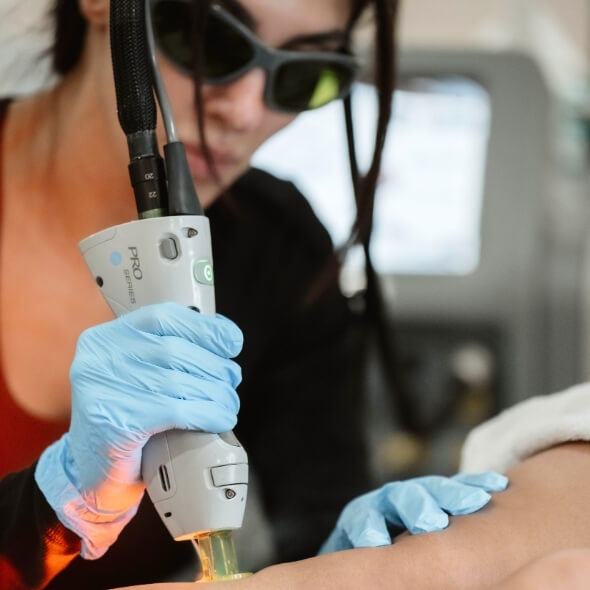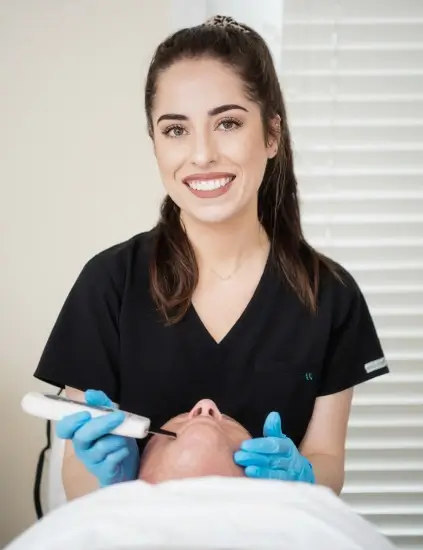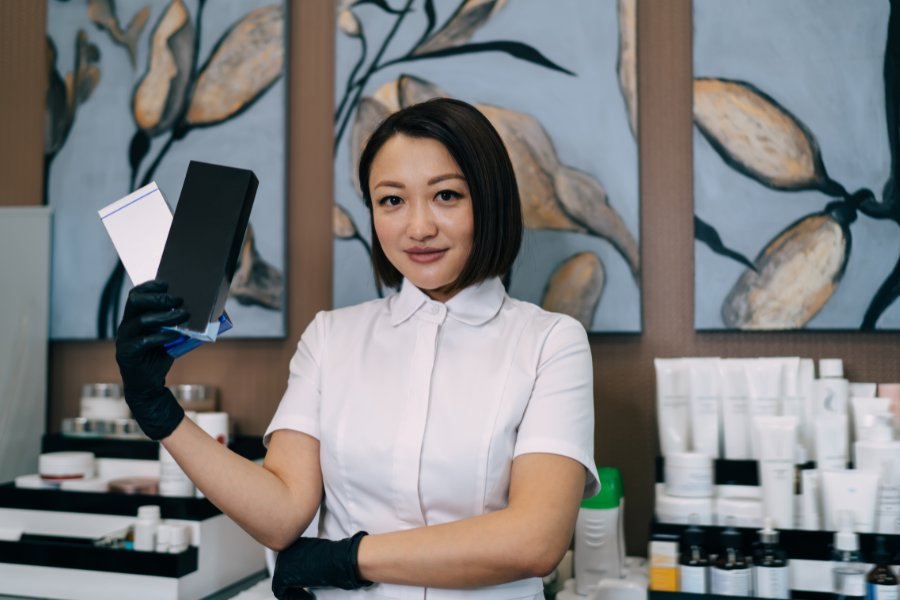Florida has become one of the most competitive markets for medical aesthetics, skin care, and beauty professionals. Demand is strong, but so are regulations. Starting your own aesthetics business here means dealing with legal filings, local zoning, permits, licenses, insurance, and industry-specific rules. You need a solid foundation if you plan to work legally and profitably, whether you’re opening a studio space or operating from home.
This guide walks through exactly how to start your own aesthetics business in Florida, from licensing to business setup, location options, and compliance.
Step 1: Form Your Legal Business
Start by registering your business with the Florida Division of Corporations. Most solo practitioners file as an LLC for basic liability protection and tax simplicity.
- File online via Sunbiz.org
- Pay the registration fee (around $125 for an LLC)
- Choose a unique business name
- Appoint a registered agent with a physical Florida address
Once you file, keep a digital and physical copy of your Articles of Organization. You’ll need them for banking, licensing, and permitting.
Step 2: Get an EIN
Apply for an Employer Identification Number (EIN) through the IRS. This is required to open a business bank account, pay taxes, and hire employees (now or later).
- Apply for free at irs.gov
- Use your business name and LLC registration details
You’ll get your EIN immediately upon approval. Save the confirmation notice.
Step 3: Open a Business Bank Account
Keep business and personal finances separate. Open a checking account and, optionally a savings account in your business name. Use this for all income and expenses related to your aesthetics business. You’ll need your Articles of Organization and EIN to open the account.

Step 4: Get Licensed to Perform Aesthetic Services in Florida
This is where things get specific. You cannot legally operate an aesthetics business in Florida without the appropriate state-issued license.
License Types:
- Facial Specialist License (Esthetician License) – Required to offer facials, peels, skincare, etc.
- Electrologist License – Needed to perform electrolysis hair removal.
- Certified Laser Technician – Must first hold an Electrologist license.
- Body Wrapper License – Required for body wrapping services.
Where to Apply:
Licensing is handled through the Florida Department of Business and Professional Regulation (DBPR). You must:
- Graduate from a Florida-approved medical aesthetician school (like Beauty and Health Institute in Tampa)
- Submit your application to DBPR
- Pay applicable fees
- Pass any required exams (depending on license)
Keep your license active and post it at your place of business. Clients and inspectors can request to see it at any time.
Step 5: Get Business Insurance
Florida does not require professional liability insurance for aestheticians by law, but operating without it is a massive risk. Carry at least:
- Professional liability (malpractice)
- General liability
- Property insurance (if leasing space or storing equipment)
- Workers’ comp (if hiring staff)
Insurance providers like ASCP, Elite Beauty Society, or local brokers in Tampa offer esthetician-specific plans. Expect to pay around $150–$400/year depending on coverage.
Step 6: Choose a Business Location
There are two legal ways to operate: lease a commercial space or work from home. Each has different requirements.
Opening a Storefront or Commercial Suite
If you’re leasing a studio, treatment room, or full spa space:
- Choose a commercially zoned space. Verify zoning with the city or county zoning department.
- Obtain a Certificate of Occupancy from your local municipality.
- Apply for a Local Business Tax Receipt (BTR) with your city and/or county.
- Schedule a fire and building inspection if required.
The landlord may handle some of these steps, but they’re your responsibility as the business owner. Buildout plans (for treatment rooms, plumbing, etc.) may need approval depending on your city.
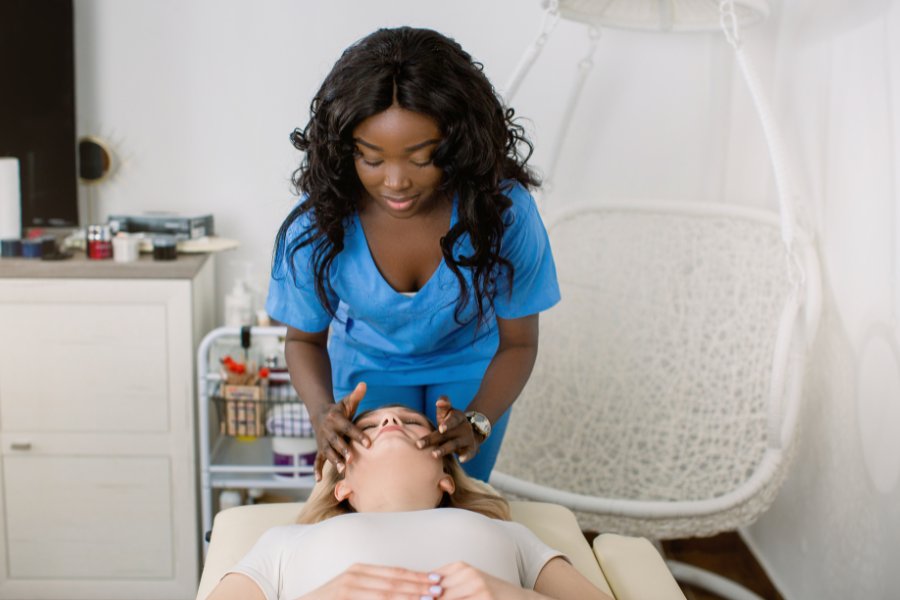
How to Run an Aesthetics Business from Home in Florida
Running a business from home is legal in Florida – but there are limitations.
- Check local zoning laws. Not all residential neighborhoods allow in-home businesses, especially if clients will be visiting.
- Apply for a Home Occupation Permit. This is usually filed with your city’s planning or zoning department.
- Secure a Local Business Tax Receipt. Required for all businesses, even home-based.
- Comply with sanitation rules. Your workspace must meet the same health and safety standards as a spa.
- Dedicated space only. You must have a separate entrance or private room used exclusively for treatments.
Don’t skip this step. Zoning violations and code complaints can shut down your operations quickly.
Step 7: Health & Safety Compliance
Florida DBPR and Department of Health have strict rules for skincare, laser, and medical aesthetics businesses.
Sanitation:
Clean and disinfect all tools and equipment between clients
- Use hospital-grade disinfectants
- Maintain a daily cleaning log
- Post hand-washing signage and sanitation protocols
Recordkeeping:
- Keep client intake forms and treatment logs for at least 2 years
- Maintain copies of all licenses, insurance policies, and permits on-site
Medical Oversight:
If offering injectables, PRP, microneedling beyond 0.25mm, or other medical services, you must operate under a licensed medical director (MD or DO). This applies even if you’re a nurse or have advanced certifications.
Step 8: Marketing and Launch
Once your legal foundation is set, build your visibility.
- Create a Google Business Profile and verify your location
- Set up a simple, clean website with booking links and license info
- Build an Instagram portfolio – post client results (with consent), reels, before/afters, and skincare tips
- Collect Google reviews immediately – even from friends
- Start lean. Offer services to models at a discount to build content, testimonials, and word of mouth.
Step 9: Ongoing Compliance
- After launch, keep your business in good standing.
- Renew licenses on time (most every 2 years)
- File annual reports with Sunbiz
- Pay your local BTR renewal
- Update your insurance coverage as needed
- Stay current on treatment laws and scope-of-practice rules
- DBPR and the Florida Department of Health perform random inspections. Keep your documents and treatment area compliant at all times.
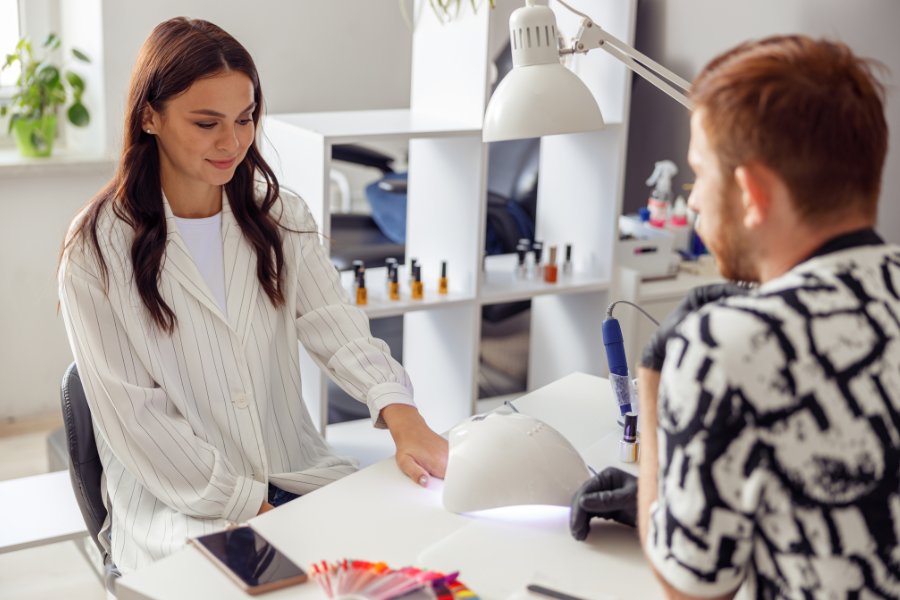
Summary: What You Need to Start
Here’s a quick checklist of what you’ll need to legally and successfully start your own aesthetics business in Florida.
✅ Register LLC via Sunbiz
✅ EIN from IRS
✅ Business bank account
✅ Florida skincare or electrologist license
✅ Local Business Tax Receipt
✅ Business insurance
✅ Commercial lease or approved home-based permit
✅ Treatment space compliant with sanitation and zoning
✅ Medical oversight (if offering medical procedures)
✅ Marketing, booking, and client intake system
Starting your own aesthetics business in Florida is a step-by-step process. It’s technical, but very impossible. Once your foundation is in place, you’re free to grow the brand you want, charge what you’re worth, and work on your terms.

